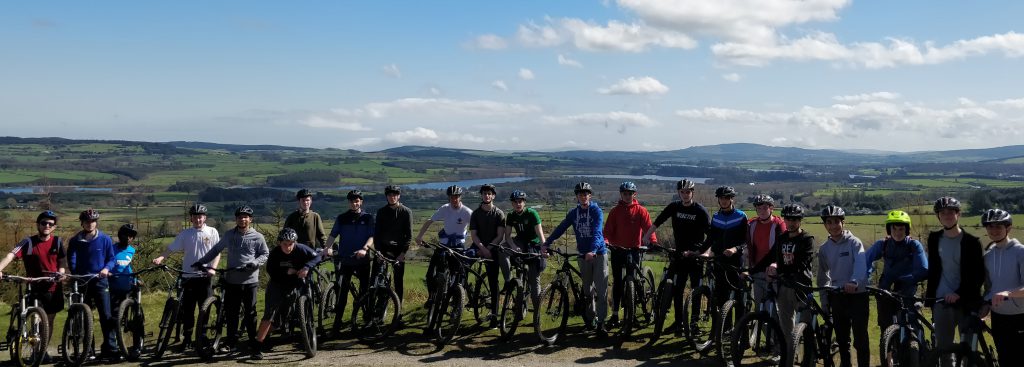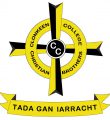
Transition Year Ethos
The purpose of Transition Year in Clonkeen College is to offer students space to learn, mature and develop. Throughout T.Y., teachers endeavour to promote activity-based learning, research skills and self-directed learning. Students are encouraged to see T.Y. as providing opportunities to discover personal strengths and to develop their potential. In addition to traditional style homework, T.Y. students are also asked to undertake group projects of an interdisciplinary nature, assignments, interviews, research and other demanding tasks. The Transition Year programme assists the students in connecting with adult and working life through the provision of work experience and career guidance modules. Students are provided with the opportunity to pursue aspects of personal development, enabling them to be better prepared for their further education. It is hoped that they will develop a sense of personal responsibility and maturity in relation to their studies, a greater awareness of their role in society and a clearer vision of their path in life.
Aims
- The provision of opportunities to discover and develop their own individual gifts and strengths, helping them to become more independent;
- To provide students with the skills and supports necessary to cope successfully with their particular stage of development;
- To experience a year where the emphasis will be on individual responsibility and the nurturing of thinking, caring, articulate and self-confident people;
- Education for maturity with the emphasis on personal development including social awareness and increased social competence;
- The promotion of general, technical and academic skills with an emphasis on interdisciplinary and self-directed learning;
- Education through experience of adult and working life as a basis for personal development and maturity.
Objectives:
Having completed a diverse programme of academic and non-academic pursuits, the students will:
- Be able to make more informed subject choices for the Leaving Certificate course having sampled a wide range of subjects;
- Have discovered personal likes/dislikes and strengths/weaknesses;
- Have personally developed and matured;
- Have seen how many of the subjects studied at school connect to real life;
- Have experienced cross-curricular activities;
- Have a greater awareness of society and the adult and working world;
- Have developed better time management skills by learning to meet deadlines and targets;
- Have C.V. preparation skills, interview skills and research skills;
- Have developed skills of self-assessment and peer assessment;
- Have developed better study skills by experiencing more independent and activity-based learning;
- Have developed in self-esteem and assertiveness;
- Have developed better relationships with students and teachers;
- Have developed in multiple intelligences (Gardner’s Multiple Intelligences Theory):
General Description and Subjects Covered:
All three class groups will have core academic subjects – English, Irish and Mathematics. These classes extend throughout the year along with programmes in Physical Education, French, Religious Studies and Computer Studies. Modules will also be taken in many other subject areas, which include; Spanish, German, Home Econamics, History, Relationship and Sexuality Education (RSE), Social Care, Business Studies, Geography, Careers Music and Drama. Activities will also be organised over the course of the year to complement school-based experiences as part of our Life Skills programme. In addition to this, students choose a commitment to one subject that they will complete over the academic year, they choose from; Creative Writing, GAA Future Leaders, Art, Young Social Innovators and Design and Communications Graphics.
Students are involved in fundraising activities for a number of charitable organisations, such as, ISPCA, Concern and St. Vincent De Paul. It is hoped that this will give the students a deeper understanding of the problems faced by many people in our society and help them develop into caring people. Each student in Transition year will also undertake work experience for four full weeks, two at the end of the first term and two at the end of the second term. This work experience will be monitored and a follow-up evaluation undertaken that includes consideration of the employer’s report. Possible career options will be explored in the light of this experience and this may provide a focus for subject choice towards the end of Transition Year.
